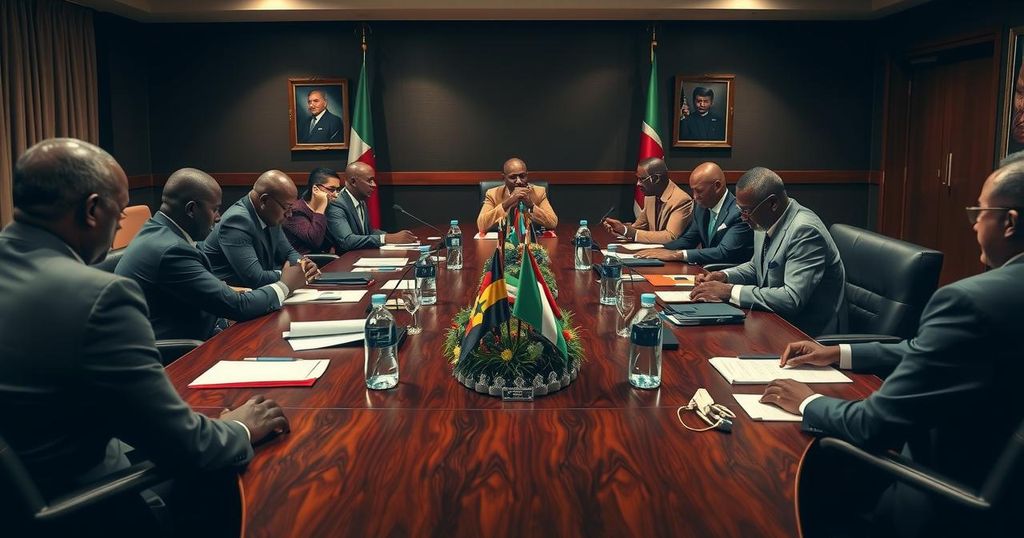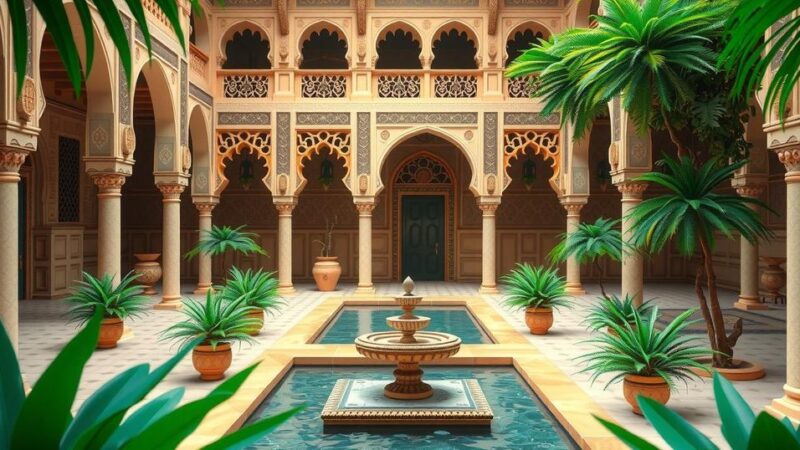South Sudan peace talks resumed in Kenya after a four-month hiatus due to the dismissal of a government delegation. The discussions aim to address conflicts involving opposition groups not part of the 2018 agreement. President Salva Kiir clarified that these talks are intended to integrate concerns from holdout factions, despite ongoing economic struggles affecting voter registration ahead of postponed elections.
The long-awaited resumption of peace talks aimed at resolving the South Sudan conflict took place in Nairobi, Kenya, after a hiatus of four months. This initiative follows the recent dismissal of a government delegation by President Salva Kiir and aims to address the persistent challenges that have affected South Sudan’s economic landscape. The discussions involve the government and various opposition groups that were not included in the 2018 peace agreement, which had previously ended a brutal civil war.
Following the sacking of the prior delegation, a new team was appointed, though travel to Nairobi was delayed on two occasions without explanation. While the 2018 peace deal remains unfulfilled, President Kiir emphasized that the current talks are intended not to replace it but to incorporate the concerns of non-signatory factions. South Sudan’s electoral timeline has also been impacted, with elections postponed from December 2024 to 2026, primarily due to financial constraints hampering the voter registration process.
Criticism of recent policy changes, particularly a law permitting detentions without warrants, has also emerged from both negotiating sides, raising concerns over human rights violations. Chief mediator Lazarus Sumbeiyo has urged the parties to address the remaining issues swiftly. Pagan Amum, leader of the South Sudan Opposition Movement Alliance, emphasized the importance of adherence to prior agreements, stating the urgency of preventing national disintegration. Kuol Manyang Juuk, representing the government faction, called for collaboration rather than starting negotiations anew, stressing the need to build on previous accomplishments.
The background of the South Sudan conflict centers on a protracted civil war that has severely impacted the nation’s stability and economy. The conflict, which resulted in over 400,000 fatalities and significant displacement, formally ended with a peace agreement in 2018. However, due to various underlying grievances, including political disagreements and economic mismanagement, several factions are still engaged in disputes. The recent peace talks are an attempt to consolidate these factions and integrate their concerns into a unified framework for governance and stability in South Sudan.
In conclusion, the renewed peace talks in South Sudan represent a critical juncture for the nation, as various stakeholders aim to address the deep-rooted issues stemming from past conflicts and governance failures. The emphasis on commitment to existing agreements and the urgency conveyed by both the government and the opposition leaders reflect a collective recognition of the dire situation facing South Sudan. The outcome of these negotiations may have significant implications for the country’s future stability, human rights, and economic recovery.
Original Source: abcnews.go.com







